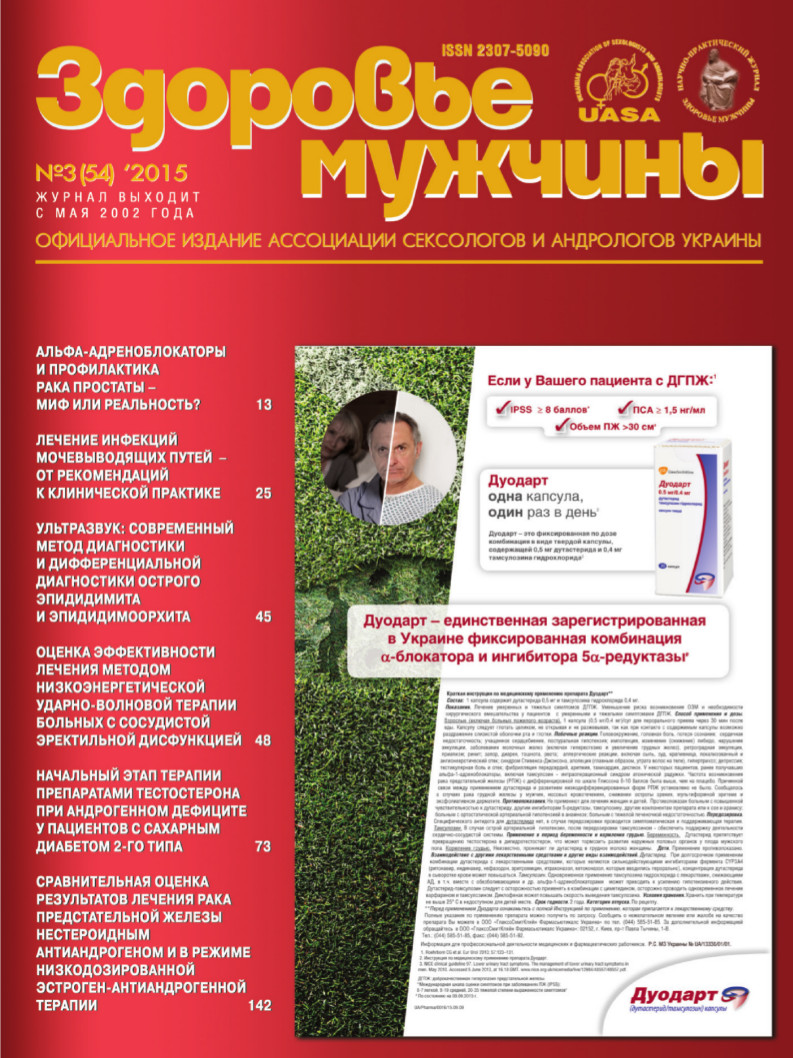Pathogenic aspects of the development of type ІІ diabetes: the role of glucocorticoid metabolism
##plugins.themes.bootstrap3.article.main##
Abstract
##plugins.themes.bootstrap3.article.details##

This work is licensed under a Creative Commons Attribution 4.0 International License.
Authors retain the copyright and grant the journal the first publication of original scientific articles under the Creative Commons Attribution 4.0 International License, which allows others to distribute work with acknowledgment of authorship and first publication in this journal.
References
beta-hydroxysteroid dehydrogenase type 1 in adipose tissue and prospective changes in body weight and insulin resistance / J. Koska, B. de Courten, D.J. Wake [et al.] // Obesity. – 2006. – Vol. 14, N 9. – P. 1515–1522.
Acute In Vivo Regulation of 11(beta)Hydroxysteroid Dehydrogenase Type 1 Activity by Insulin and Intralipid Infusions in Humans / D.J. Wake, N.Z.M. Homer, R. Andrew [et al.] // J. Clin. Endocrinol. Metab. – 2006. – Vol. 91, N 11. – P. 4682–4688.
Anagnostis P. The pathogenetic role of cortisol in the metabolic syndrome: a hypothesis / P. Anagnostis // J. Clin. Endocrinol. Metab. – 2009. – 94.– N 8. – P. 2692–701.
Cortisol clearance and associations with insulin sensitivity, body fat and fatty liver in middlelaged men / H.B. Holt, S.H. Wild, A.D. Postle [et al.] // Diabetologia. – 2007. – Vol. 50, N 5. – P. 1024–1032.
Gagliardi L. Screening for subclinical Cushing’s syndrome in type 2 diabetes mellitus: low false-positive rates with nocturnal salivary cortisol / L. Gagliardi, I.M. Chapman, P. O’Loughlin // Horm. Metab. Res. – 2010. – Vol. 42, N 4. – P. 280–284.
Ge R. Corticosteroid-mediated programming and the pathogenesis of obesity and diabetes / R. Ge, Y. Huang, G. Liang // J. Steroid. Biochem. Mol. Biol. – 2010. – Vol. 122, N 1–3. – P. 3–9.
Kerstens M.N. Tissue-specific changes in cortisol metabolism and their potential role in the metabolic syndrome / M.N. Kerstens, B.H. Wolffenbuttel, R.P. Dullaart // Ned. Tijdschr. Geneeskd. – 2005. – Vol. 149, N 16. – P. 871–876.
Morgan S.A. 11beta-hydroxysteroid dehydrogenase type 1 inhibitors for the treatment of type 2 diabetes / S.A. Morgan, J.W. Tomlinson // Expert. Opin. Investig. Drugs. – 2010. – Vol. 19, N 9. – P. 1067–1076.
Morton N.M. Obesity and corticosteroids: 11beta-hydroxysteroid type 1 as a cause and therapeutic target in metabolic disease / N.M. Morton // Mol. Cell. Endocrinol. – 2010. – Vol. 316, N 2. – P. 154–164.
Relationships between cortisol level, mortality and chronic diseases in older persons / RM. Schoorlemmer, GM. Peeters, NM. van Schoor [et al.] // Clin. Endocrinol. (Oxf). – 2009. – Vol. 71, N 6. – P. 779–786.
Stewart P.M. 11β-hydroxysteroid dehydrogenase / P.M. Stewart, Z.S. Krozowski // Vitam. Horm. – 1999. – 57. – P. 249–324.
Stewart P.M. Tissue-specific Cushing’s syndrome,11beta-hydroxysteroid dehydrogenases and the redefinition of corticosteroid hormone action / P.M. Stewart // Eur. J.Endocrinol. – 2003. – Vol. 149, N 3. – P. 163–168.
Stimson R.H. Cortisol release from adipose tissue by 11beta-hydroxysteroid dehydrogenase type 1 in humans / R.H. Stimson // Diabetes. – 2009. – Vol. 58, N 1. – P. 46–53.
Tissue-specific dysregulation of cortisol metabolism in human obesity / E. Kask, T. Olsson, S. Soderberg [et al.] // J. Clin. Endocrinol. Metab. – 2001. – Vol. 86, N 3. – P. 1418–1421.
Walker B.R. Extra-adrenal regeneration of glucocorticoids by 11beta-hydroxysteroid dehydrogenase type 1: physiological regulator and pharmacological target for energy partitioning / B.R. Walker // Proc. Nutr. Soc. – 2007. – Vol. 66, N 1. – P. 1–8.
Weight loss increases 11β-hydroxysteroid dehydrogenase type 1 expression in human adipose tissue / W. Tomlinson, S. Moore, P.M.S. Clarck [et al.] // J. Clin. Endocrinol.Metab. – 2004. – Vol. 89, N 6. – P. 2711–2716.
Безверхая Т.П. Функциональная активность коры надпочечников и обмен кортизола у больных сахарным диабетом: Автореф. дис. ... док. мед.наук. / Безверхая Т.П.; Киев, 1978. – 45 с.





